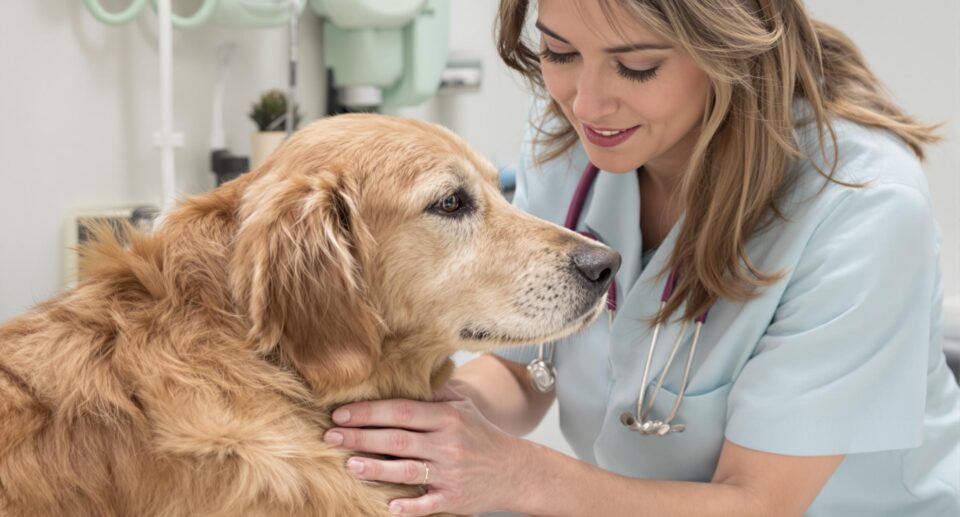What Dog Parents Should Know About Canine Lymphoma

One of the most common types of cancers in dogs is canine lymphoma. In dogs with lymphoma, cancer attacks lymphocytes, a type of white blood cell found in the lymph nodes throughout the body. While the way it spreads is unique to other types of cancers, making it difficult to cure, there are treatment options that allow dogs with lymphoma to enjoy a few more healthy years.
How Is Canine Lymphoma Diagnosed?
Canine lymphoma affects lymph nodes located both within in the body surrounding the internal organs and close to the surface of the skin. Affected lymph nodes swell and harden. Prior to diagnosis, dog parents will typically notice one or more hardened lymph nodes in areas like under the jaw, behind an armpit, behind a knee, or in the groin area.
Approximately 1 in 15 dogs will develop lymphoma. It’s much more common in dogs than it is in humans. It typically affects dogs over 8 years old, so it’s a good idea to begin monitoring your dog for any lumps or bumps on a regular basis once they enter their senior years.
As not all lymph nodes are located in areas that are easy to palpate, you should also be on the lookout for symptoms that indicate your dog is not feeling well. Lymph nodes close to the internal organs can cause symptoms like lethargy, anorexia (not eating), vomiting, or difficulty breathing.
Any time your dog has an unusual lump, bump, or growth, your veterinarian can aspirate it with a needle to take a sample of the tissue. The tissue sample will then be examined under a microscope to check for cancer cells. If the affected lymph nodes may be internal, your veterinarian may use an ultrasound or x-ray.
How Is Canine Lymphoma Treated?
As lymphoma affects the entire body, it is more difficult to treat than other cancers, and it is usually not curable. However, many dogs can enter remission with chemotherapy. Chemotherapy for dogs is administered at lower doses than for human cancer patients, so most dogs will experience only mild, if any, side effects like gastric upset. In over 90% of cases, the lymphoma will respond to chemotherapy, and the dog will go into remission for about 12 months, but most will eventually relapse.
If your dog has been diagnosed with lymphoma, ask your veterinarian if they can point you in the direction of any clinical trials or experimental treatments. New treatment options, including bone marrow transplants and an oral tablet called Laverdia-CA1, have had promising results for dogs with lymphoma. You can also ask your veterinarian about holistic options, which can often be used alongside conventional treatments to help manage side effects or even possibly slow the progression of the disease.





